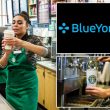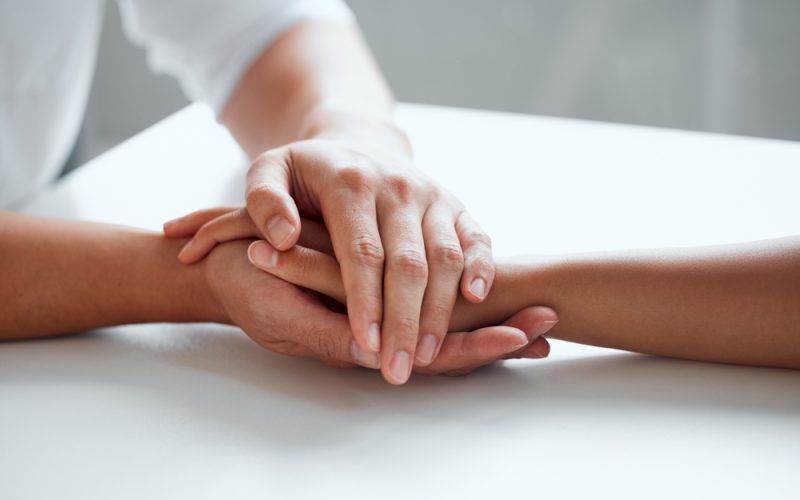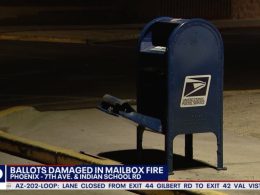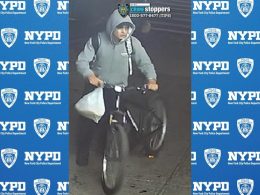The results of the presidential election are in, yet the anger, polarization and distrust of government on both sides of the political divide still linger. Now, as we move on to the season of Thanksgiving, it’s time to begin turning the page and head for a place where optimism and connectivity prevail.
And there is a proven way to cool things down, to get Americans in a better frame of mind about one another. It can be achieved by embracing one of the most basic and beneficial of human qualities: Kindness.
Kindness is the glue that holds people together. It reverses emotional downward spirals because it counters negativity. But it takes effort. Research shows that five acts of kindness are needed to quell one dose of pessimism.
Over the past 30 years, the nonprofit organization Values-in-Action Foundation has asked more than 2.1 million students in schools throughout all 50 states to define kindness. During these sessions involving both urban and suburban high schools, the students defined kindness as including:
- doing something nice without expecting anything in return
- helping people in need
- cheering up someone who is down
- being there for a friend
- standing up for someone
- respecting people’s differences
- giving compliments
- thinking before acting
- giving people the benefit of the doubt
- apologizing when you’re wrong
These youngsters’ responses were hardly unique. Across the three decades that Values-in-Action has been in operation, participating students have not wavered in their appreciation for kindness and their aversion to meanness. We as a nation should take heed and follow their example.
Actively promoting kindness is a proven way to help make that happen. We know this because our program encourages people to perform acts of kindness — think helping an elderly person carry groceries, buying a kid an ice cream cone or just waving hello to a passing stranger — and to record those acts of kindness, both one’s own and those of others, on our free Just Be Kind app and then post them on social media.
Last year in Northeast Ohio, Values-in-Action documented 91 million acts of kindness as thousands of students recorded such acts in their schools and communities through our app.
There is clearly a real hunger for an organized approach to this challenge. When Kindland first introduced its program in Ohio — Kindland’s model state — it attracted 500 community leaders, more than 100 nonprofit organizations, schools, governments agencies, media organizations and businesses whose employees totaled more than 100,000. Ohio media organizations began increasing their coverage of acts of kindness as well.
We’ve been spreading the word and growing nationally ever since. Our sponsors range from the United Church of Christ to the American Red Cross to dozens of companies and corporations.
The growing record of good deeds spreads the message that being kind is easy and uplifting, and thus inspires still more folks to join in.
That’s not just guesswork. Both Kindland’s history and separate sociological studies confirm that even small acts of kindness have a ripple effect, sparking a chain reaction of compassion and goodwill. This domino effect can transcend boundaries and positively influence broader societal dynamics.
There’s more. Kindness is proven to extend lifespans, instill a sense of belonging and connectedness, increase happiness, reduce anxiety and depression and enhance prosocial behavior in the workplace.
In one of the most violent schools in Cleveland, kindness programming helped increase the graduation rate by 43%, reduce suspensions by 78% and eliminate fights.
Being kind is perhaps the one remaining unifying core value that everyone can agree on in these troubling times. And so Values-in-Action is issuing a challenge. Called “The United States of Kindness,” it is a simple bingo-like board of 20 acts of kindness we all can do — individually, with our friends, co-workers, siblings, children, grandchildren, even strangers.
You can print it out at www.bekindland.com. Challenge your friends and neighbors to see how many acts of kindness they can do as part of the upcoming season of giving. Simple things like thanking a police officer or firefighter, leaving a note for the mail carrier, saying something kind to someone who disagrees with you, or just saying, “Have a nice day.”
Mark Twain once said, “Kindness is the language which the deaf can hear and the blind can see.” We all must give it a chance and in doing so, become part of what should be a transformative movement.
Muszynski is president and CEO of Values-In-Action Foundation (www.Viafdn.org).








